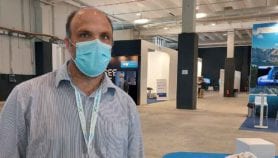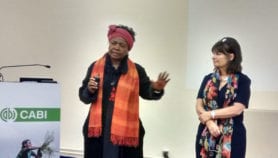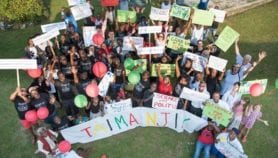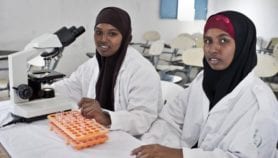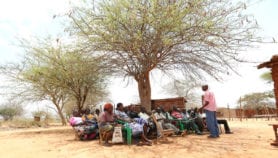By: Catherine Brahic
Send to a friend
The details you provide on this page will not be used to send unsolicited email, and will not be sold to a 3rd party. See privacy policy.
Italy last week pledged US$500,000 to help the United Nations set up a network of centres of research excellence in developing countries.
Paolo Bruni, Italian ambassador to Switzerland, made the announcement at the eighth session of the UN Commission on Science and Technology for Development (CSTD), held in Geneva on 23-27 May.
The purpose of the network is to fund researchers in developing countries to attend short training courses at these centres.
It will also help the institutions to pool resources and collaborate on research projects that are of importance to international development, such as research on agriculture, health or the environment.
The commission has chosen more than 100 science and technology institutions in developing countries from a list prepared by the Academy of Sciences for the Developing World (TWAS). These are said to be ‘centres of excellence’, based on the quality of their research, as well as their infrastructure, and their efforts to diffuse knowledge and share facilities.
A steering committee is now being set up to select ten institutes that will initially form the network.
Mongi Hamdi, spokesperson for CSTD, told SciDev.Net that the network would seek to draw lecturers from the North to provide training to those in the South.
“The network should reverse the negative impact of ‘brain drain’ by producing researchers able to tackle their countries’ development head-on,” said a statement from CSTD.
Hamdi said the commission estimated that the network’s full operating costs would be about US$1 million per year. This sum would fund three months of training for 50 scientists and engineers each year.
Although Italy is the only country to pledge money to the network so far, the UN Conference on Trade and Development, which is to run the network, is hoping other countries will follow Italy’s example.
The concept for the network came from a report published by the CSTD in April, on the role of science and technology in achieving the UN Millennium Development Goals.
The goals are a set of economic, social and health development targets that the members of the UN have pledged to meet by 2015.
The CSTD report concluded that science and technology could both make the goals more likely to be met and reduce the cost of achieving them.
It said that there are “a number of outstanding scientific and technological institutions that can be qualified as centres of excellence”.
“There is an urgent need to connect these developing country centres of excellence,” wrote the authors, “thereby allowing facilities available at world-class centres to be made available to scientists and engineers in other developing countries.”
Hamdi says the network should be operational by the end of this year.More on Networks

Script media release
Journalists offered ‘big break’ mentoring opportunity from Radio Nigeria
03/04/19



